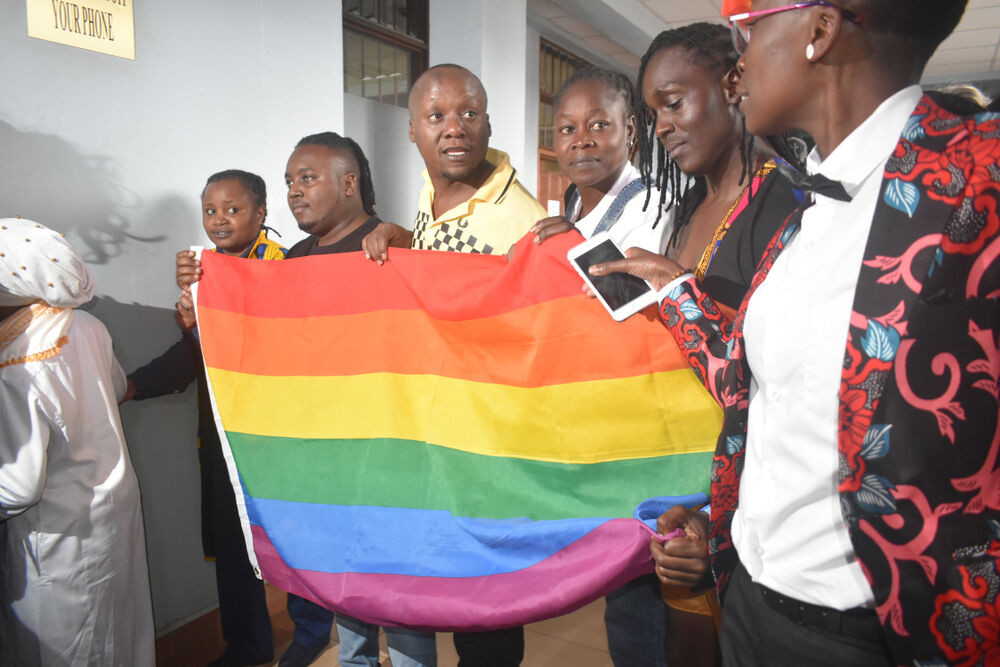In Kenya, the latest Kill the Gays copycat bill is moving through Parliament and threatens thousands of LGBTQ+ refugees fleeing persecution in neighboring Uganda.
The proposed law, the latest in a wave of anti-LGBTQ+ legislation introduced across Africa, would expel refugees and asylum seekers who identify as gay, in addition to meting out punishment for an exhaustive list of other “immoral” or abetting offenses.
Related:
Ugandans flee as Kill the Gays gains momentum across Africa
Arizona-based Family Watch International is a key player stoking anti-LGBTQ+ hate across the continent.
Provisions in the bill seek the “expulsion of refugees and asylum seekers who breach the law” and would mandate “psychotherapy and rehabilitation of offenders,” raising the prospect of reeducation camps and forced conversion therapy.
The bill mandates life in prison for anyone engaging in homosexual sex.
Never Miss a Beat
Subscribe to our newsletter to stay ahead of the latest LGBTQ+ political news and insights.
Kenya has been the primary destination of LGBTQ+ individuals fleeing Uganda in the wake of that East African nation’s Kill the Gays bill 2.0, which President Yoweri Museveni recently sent back to Parliament for further consideration of additional penalties.
Museveni congratulated lawmakers who stood up to “international pressure and shielded Uganda’s moral fabric during the passing of the bill” and signaled his intention to sign the law.
While Ugandans fleeing persecution are holed up in refugee camps and safe houses throughout Kenya, hostility toward LGBTQ+ people has been growing in the former British colony, as well.
In February, the Kenyan Supreme Court ruled that the National Gay and Lesbian Human Rights Commission could register as a non-governmental organization there, sparking outrage among conservative lawmakers and President William Ruto, who ordered his government’s attorney general to challenge the court’s decision as a violation of Kenyan and moral law.
Then earlier this month, Member of Parliament Peter Kaluma introduced his copycat Family Protection Bill, modeled on Uganda’s Anti-Homosexuality Act. The lawmaker’s proposed legislation followed a summit of anti-LGBTQ+ activist lawmakers in Uganda in March, organized by Family Watch International, an Arizona-based organization committed to spreading anti-LGBTQ+ and anti-abortion ideology around the world. The group was instrumental in crafting the original Kill the Gays bill in Uganda in 2009.
“Same-sex sexual acts and unions are sterile by nature,” Kaluma said, introducing the legislation. “If tolerated or supported and propagated, would lead to the extinction of the human race.”
Paradoxically, Kenya is the only East African nation to accept LGBTQ+ refugees and asylum seekers without questioning their sexual orientation.
The country hosts more than half a million displaced people from nearby countries in refugee camps in Dadaab and Kakuma. Kakuma is one of the largest in the world.
Multiple reports from the Organization for Refuge, Asylum and Migration and the U.N. Refugee Agency in Kenya document human rights violations against LGBTQ+ people at both refugee camps.
Earlier this year, more than 300 LGBTQ+ refugees at Kakuma launched a signature drive protesting discrimination, torture, and mistreatment.
“As refugees who have sought safety and refuge from conflict and persecution, we should not have to endure further suffering and discrimination within the confines of the camp,” the petition reads. “Yet, this is the reality for many of us.”
Police brutality and mistreatment have led to death, disability, and “a climate of fear and insecurity within the camp, where we are unable to live freely and openly as members of the LGBTIQ+ community,” the signatories wrote. “We are tired of living in fear, and we demand an end to these injustices.”
Don't forget to share:














